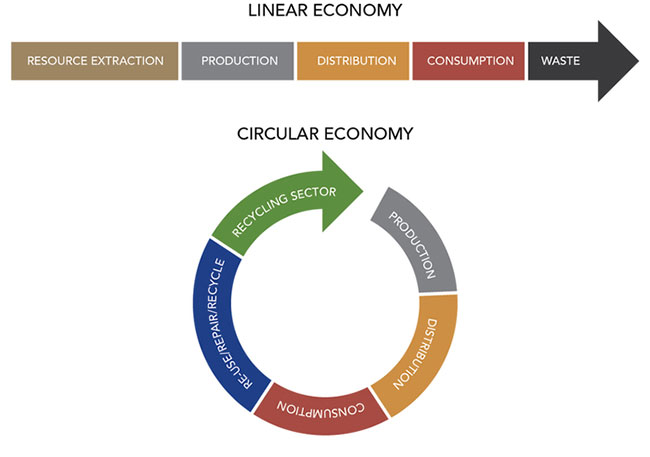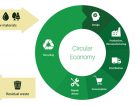
Opinion
Management
Sustainability
Technology
Sustainability: The challenge for RAS
September 4, 2019 By Maddi Badiola

Following my previous article, the consideration of RAS sustainability should be analyzed from different angles. In general, sustainable product, sustainable communities and/or sustainable systems claims are often based on a single feature, disregarding other possible characteristics –being energy-efficient or recyclable, for instance.
Sustainable development is one of the greatest challenges of our time. It brings together a number of global problems. Thus, different descriptions of sustainability sometimes compete with one another. Use of the term is often misused. Moreover, as mentioned in earlier articles, sustainability should be assessed from four different directions: social, environmental, technological and economical. The first two have already been explained, so let’s continue with the last two aspects.
Technological sustainability
Industry development, an inherently technological evolution has played an important role in creating the problems that we face, but will also play an important role in solving them. The reason is not that sustainable development is a technological mission; rather, sustainable development is the mission for the whole of society.
RAS is a technology-based system. Nowadays many are 100 per cent monitored where every single value, data or modification can be seen or watched online, as a big brother’s eye. In terms of technological sustainability, the technology designed by engineers (with the aid of the managers in charge) could be analysed using these questions:
What characteristic of sustainable development informed the design process? What sustainability impacts or effects are caused by the technology? Who or what was affected, where and when? Could the designer have foreseen these consequences? How did the designer judge and anticipate them? How was societal interaction dealt with during the design process?
In general, the sustainability assessment begins in the farm, but how the technology was produced or how much waste is generated by such technology is important as it is also part of the product production.
Economical sustainability
RAS are expensive, usually require costly indoor spaces and have continuous and substantial operational requirements beyond less intensive methods. Moreover, the costs of labor and energy can be prohibitively high depending on the location. The production location influences the competitiveness of the aquaculture farm by conditioning environmental impacts and economic expenditure factors. For instance, any comparison between different RAS productions may not be realistic as many factors (e.g. species, country, production volumes and policies) affect the results obtained.
A clear dimension and perspective of economies of scale needs to be considered if affordable operational costs and consistent marketable final product prices are intended in the given location of the system/company. We are looking for a balance between operational costs and production benefits.
RAS management and understanding affect their performance and, consequently, industry success. Moreover, the investment required and the long pay-back periods seem to be the greatest constraints. Thus, a good market study is required in order to plan an affordable and realistic production goal. Nonetheless, the first requirement would be a reliable operation, followed by low operating costs.
The circular economy
The latest economy model concept has interests on global markets, with growing environmental issues where the food sector has a major importance. The circular economy aims to redefine growth, focusing on positive society-wide benefits. It entails gradually decoupling economic activity from the consumption of finite resources, and designing net waste out of the system. This “re-thinking progress” is based on three principles: (i) design out waste and pollution, (ii) keep products and materials in use and, (iii) regenerate natural systems.
The model distinguishes between technical and biological cycles. Thus, consumption only happens in biological cycles, where food and biologically-based materials are designed to feed back into the system through processes like composting and anaerobic digestion. These cycles regenerate living systems, such as soil and RAS solid waste, which provide renewable resources for the economy. Technical cycles recover and restore products, components, and materials through strategies like re-use, repair, remanufacture or recycling.
Doesn’t all that perfectly fit into the RAS way of thinking? Doesn’t RAS try to generate the least waste possible? Isn’t one of the main objetives to re-use all the waste for any other purpose, such as agricultural manure and/or biogas production? If you want to know the answers to some of these make sure you read the next article.
Are we on a good path? The know-how is there; let’s make a more profitable industry with less costs and resource use. As a rule, the challenges of sustainable development will be different in specific settings. In aquaculture, and RAS in particular, energy, water and waste are the three encompassing challenges. Although it will be challenging to design the most innovative, productive, efficient, profitable and environmentally friendly RAS in the future, it will not be a single measure that will lead to the widespread success of commercial RAS. Rather, the commercial success of this industry will require the need to genuinely focus on the combination of all aspects of these types of ventures.
In reality, rethinking such productions with an integrated mindset will help with holistically tackling the simultaneous challenges of energy demands, management matters, consumer preferences, and system efficiency.
Follow me on LinkedIn, Instagram and/or Facebook. I’m happy to answer questions, have an enjoyable chat or assess a RAS.
Maddi Badiola, PhD, is a RAS engineer and co-founder of HTH aquaMetrics LLC, (www.hthaqua.com) based in Getxo, Biscaye, Basque Country, Spain. Her specialty is energy conservation, life cycle assessments and RAS global sustainability asessments. Contact her at mbadiolamillate@gmail.com.
Print this page
